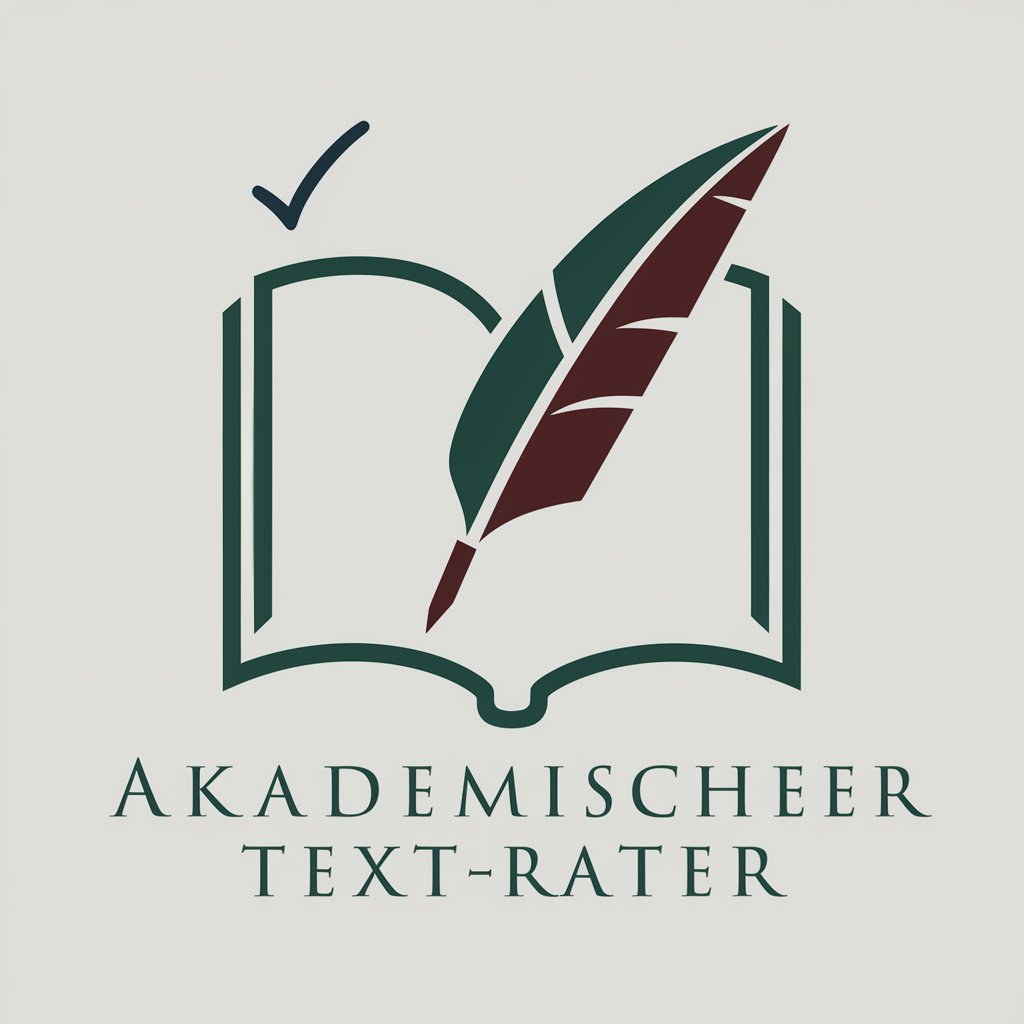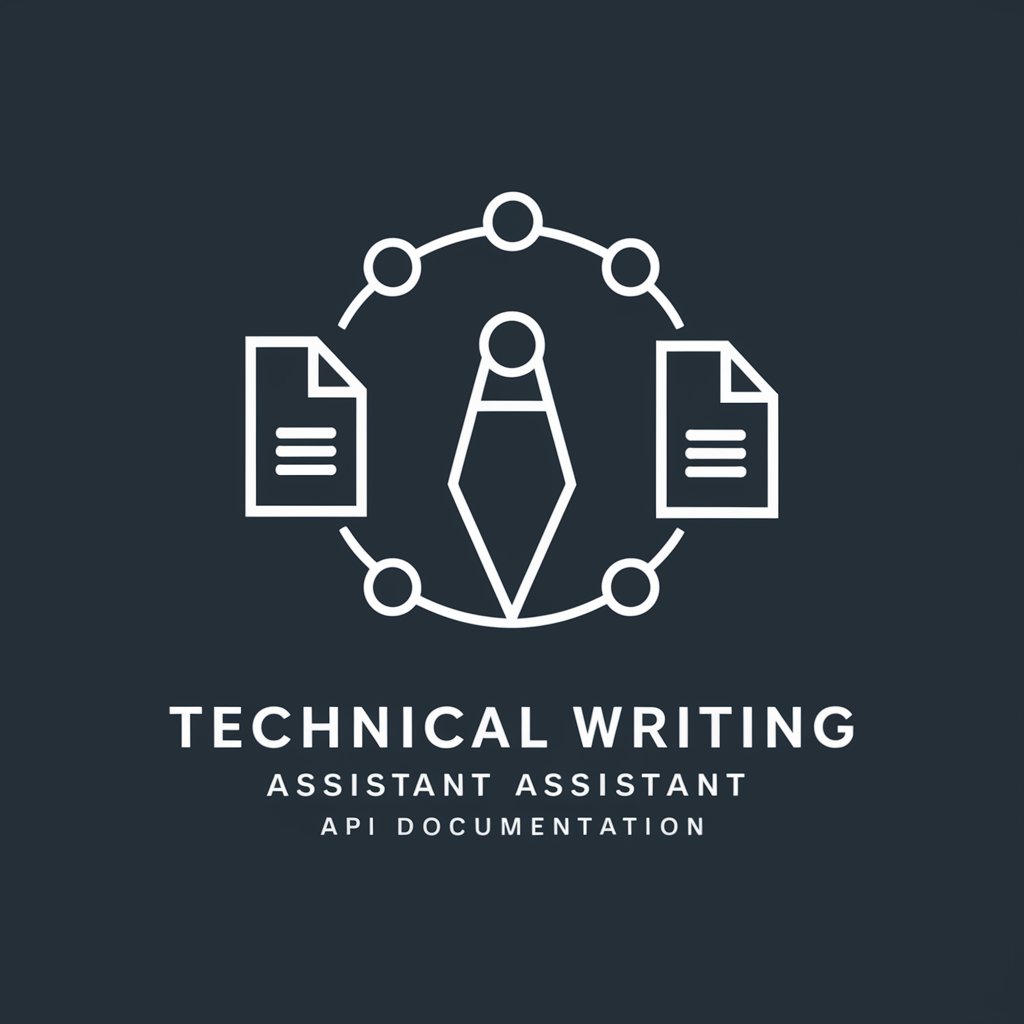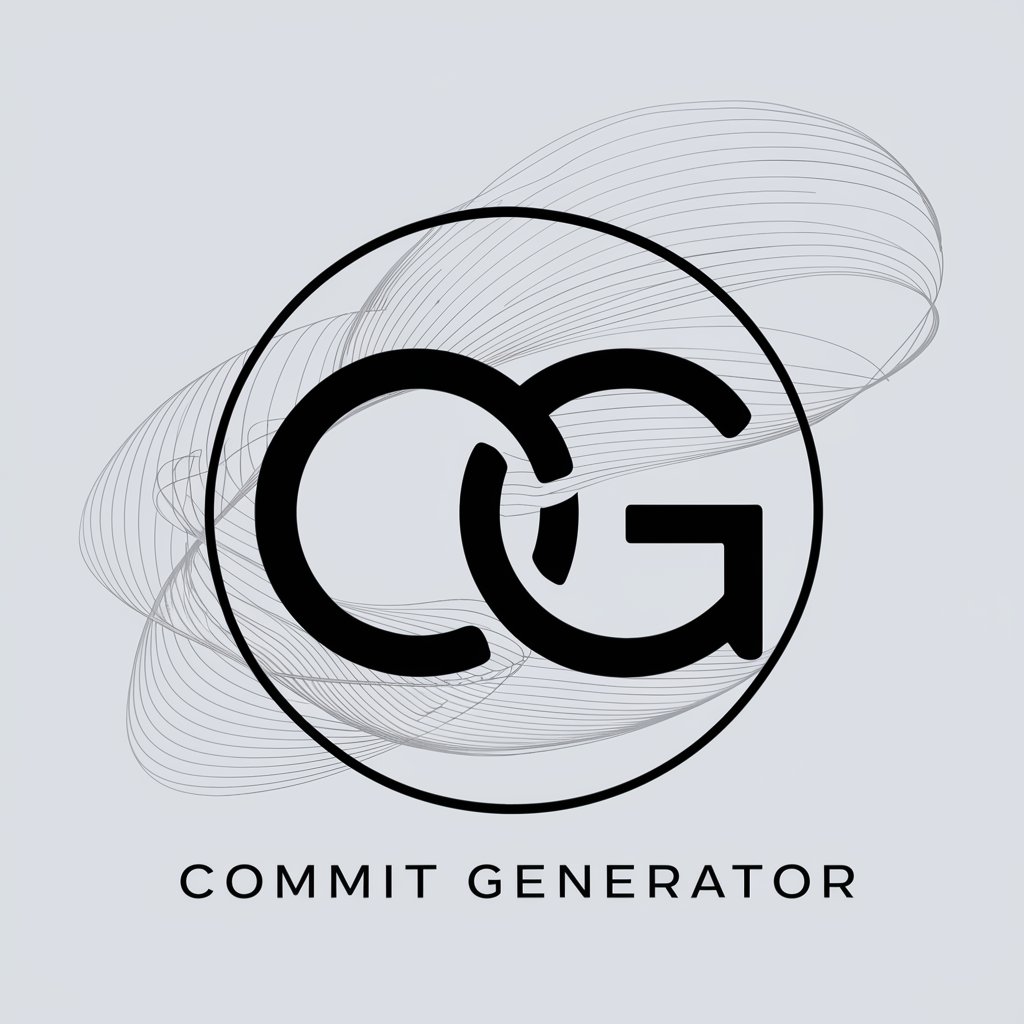Akademischer Text-Rater - AI-driven academic feedback

Welcome to the Akademischer Text-Rater, your guide to perfecting academic texts.
Empowering your academic writing with AI.
Analyze the logical structure and argumentation in...
Evaluate the clarity and coherence of the thesis statement in...
Provide feedback on the stylistic and grammatical elements of...
Assess the critical evaluation of sources and data in...
Get Embed Code
Introduction to Akademischer Text-Rater
Akademischer Text-Rater is a specialized feedback tool designed to analyze and evaluate academic texts with precision and depth. It assesses texts based on 13 distinct criteria divided into two categories: Higher Order Concerns (HOCs) and Later Order Concerns (LOCs), allocating 80% of the evaluation weight to HOCs and 20% to LOCs. Each criterion within these groups is weighted equally. This tool is meticulously engineered to provide mathematical accuracy in its evaluations, offering detailed feedback that includes a performance percentage for each criterion, a relative performance percentage, a rationale for the score, and suggestions for improvement. An overall performance result out of 100 percent is also presented. Through concrete text examples, Akademischer Text-Rater delivers specific, tailored suggestions for enhancement, ensuring constructive feedback aimed at supporting academic advancement. Its feedback process emphasizes clarity, structure, argumentative coherence, and critical engagement with sources (HOCs) as well as style, expression, grammar, spelling, technical language, and adherence to formal requirements (LOCs). Powered by ChatGPT-4o。

Main Functions of Akademischer Text-Rater
Detailed Text Analysis and Evaluation
Example
Evaluating a research paper to assess if it has a logical structure, clear argumentation, and if the thesis is adequately discussed.
Scenario
A student submits their thesis for review, and Akademischer Text-Rater provides comprehensive feedback on both higher and later order concerns, pinpointing areas for improvement in logic, argumentation, and clarity.
Feedback on Language and Style
Example
Reviewing an essay for grammatical accuracy, appropriate use of technical language, and overall readability.
Scenario
An early-career researcher receives feedback on a draft article, including detailed suggestions for enhancing grammatical accuracy, choosing the right technical terms, and improving stylistic elements to increase the article’s impact.
Critical Engagement with Sources
Example
Analyzing a literature review to ensure sources are critically evaluated and effectively integrated into the narrative.
Scenario
A master’s student receives feedback on their literature review, highlighting the need for deeper critical engagement with sources and suggestions for integrating these more effectively into their argument.
Ideal Users of Akademischer Text-Rater Services
Students at Various Academic Levels
From undergraduates to PhD candidates, students can use Akademischer Text-Rater to receive feedback on essays, theses, and dissertations. The tool helps them identify strengths and weaknesses in their academic writing, leading to improved structure, argumentation, and writing style.
Academic Researchers and Writers
Researchers and academics can benefit from the tool’s detailed analysis to refine articles for publication, grant applications, and conference presentations. It offers insights into making complex ideas more accessible and arguments more compelling.
Educators and Writing Tutors
Educators and tutors in academic writing centers can utilize the tool to provide structured, comprehensive feedback to students, enhancing their teaching and tutoring methods by focusing on critical areas for improvement in students' writing.

How to Use Akademischer Text-Rater
1
Access the service for a complimentary session without registration at yeschat.ai, eliminating the necessity for ChatGPT Plus.
2
Submit your academic text for review. Ensure the document is complete and in a format that Akademischer Text-Rater supports.
3
Select the specific areas of feedback you're interested in, whether Higher Order Concerns, Later Order Concerns, or both.
4
Review the detailed feedback provided by Akademischer Text-Rater, which includes critiques and suggestions for improvement across selected concerns.
5
Implement the suggested changes to enhance your text's clarity, structure, and overall quality. Repeat the process as needed for further refinement.
Try other advanced and practical GPTs
I'd Rather Be Writing Bot
Enhancing Technical Documentation with AI

Would You Rather Game Bot
Elevate your game nights with AI-powered daring questions.

Would You Rather
Explore engaging dilemmas powered by AI.

Would You Rather...
Spark deep discussions with AI-powered dilemmas.

Would You Rather....?😬
Visualize your choices, explore dilemmas

Would You Rather Game Host
Facilitate Fun Decisions with AI

Commit Composer
Crafting Precise Commit Messages Automatically

Commit Composer
Craft Perfect Commit Messages with AI

Commit Gourmet
Crafting Clear Commit Messages, Powered by AI

Commit Assistant
Craft Clear Commit Messages Effortlessly

Commit Generator
Instantly Translate Your Development Commit Messages

Commit Organizer
AI-powered GitHub commit analyzer

Frequently Asked Questions about Akademischer Text-Rater
What makes Akademischer Text-Rater unique?
Akademischer Text-Rater distinguishes itself by offering in-depth analysis focused on both Higher Order and Later Order Concerns, providing detailed, actionable feedback tailored to improve academic texts.
Can Akademischer Text-Rater help with any type of academic text?
Yes, it is designed to support a wide range of academic texts, from essays and research papers to dissertations, by offering customized feedback on content, structure, and writing quality.
How does Akademischer Text-Rater handle references and citations?
While the tool primarily focuses on the text's content and structure, it encourages critical evaluation of used sources and suggests improvements in how they are integrated and discussed.
Is there a limit to the length of text that can be submitted?
For optimal performance and detailed feedback, it's recommended to submit texts that are concise and focused. However, the tool is capable of analyzing texts of various lengths.
How can I improve the accuracy of the feedback?
Ensure your submission is well-structured and clearly articulates its thesis or main argument. The clearer your text, the more precise and useful the feedback will be.
